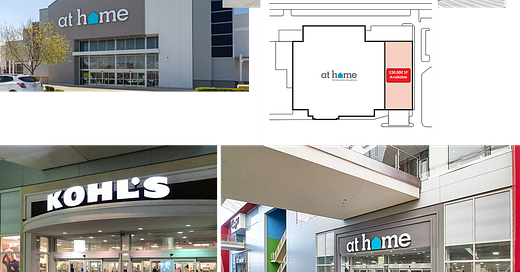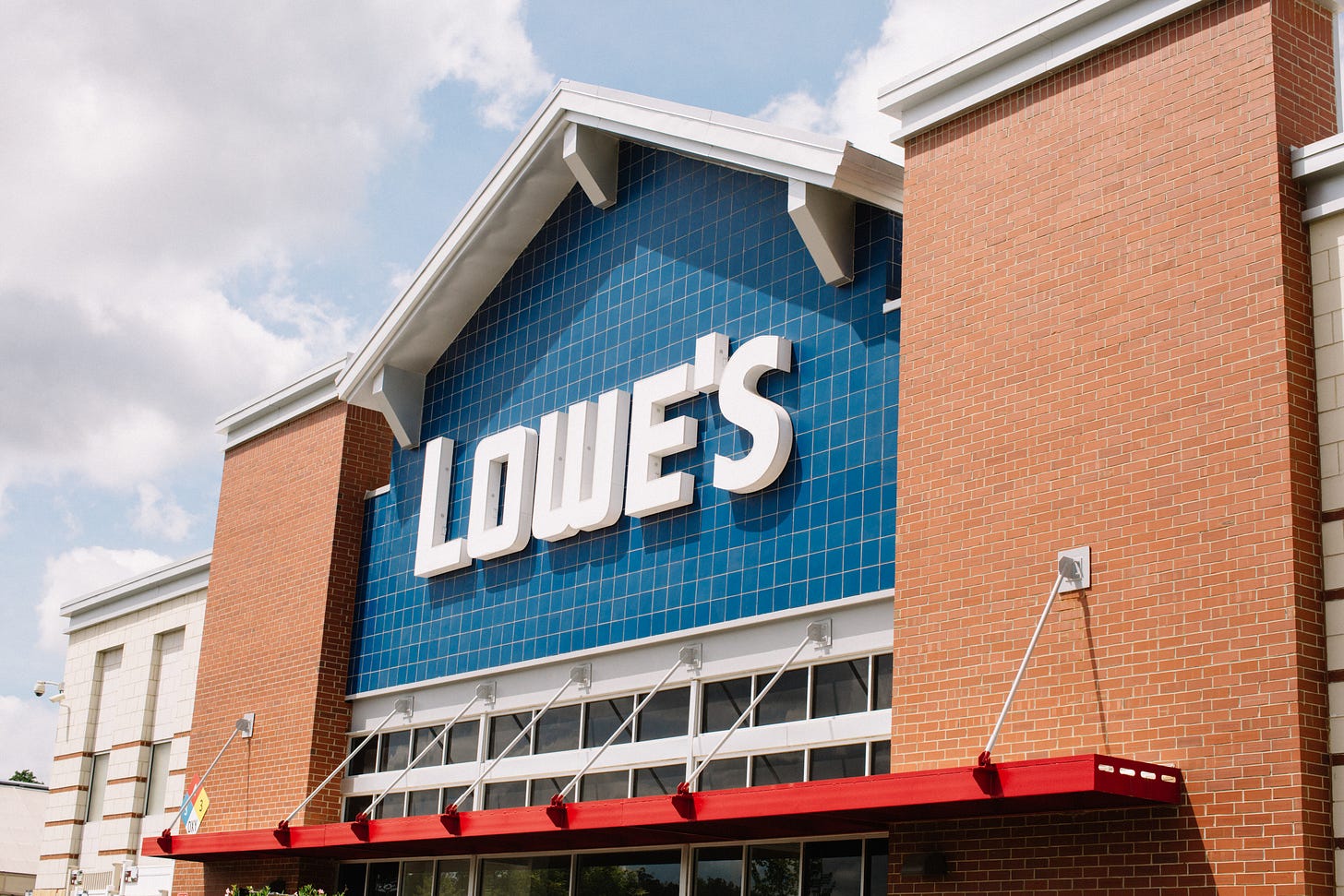Why The At Home Bankruptcy Will Increase Costs For Lowe's and Kohl's
Several stores that At Home is closing in bankruptcy were subleased from other retailers like Lowe's and Kohl's; At Home will reject these subleases but Lowe's and Kohl's will still be on the hook
Lowe’s and Kohl’s are unlikely losers in the bankruptcy of home goods retailer At Home.
Not due to an impact to their retail operations.
But rather because they were "sublandlords" to At Home at 2 of the 26 stores that it is closing while in Chapter 11 bankruptcy.
At Home will be able to cancel these sublease agreements with Lowe’s and Kohl’s and incur no further charges even if it emerges from bankruptcy.
However Lowe’s and Kohl’s will still be on the hook for all lease payments to the property owners for the duration of the underlying leases.
In 2018 Lowe’s closed 20 of its underperforming U.S. stores.
While the majority of these properties were owned by Lowe’s—and have since been redeveloped and repurposed—a few were leased from other property owners.
Some of these leased sites had many years of remaining rent payments for which Lowe’s was obligated whether it operated a store or not.
So Lowe’s subleased sites to other retailers in order to mitigate its rent costs.
One such site was a former Lowe’s store on Newhall Drive in San Jose, CA that it subleased to At Home in 2020.
However this San Jose site is 1 of the 26 initial store closures revealed in At Home’s bankruptcy filing last month.
Because At Home is operating in Chapter 11 bankruptcy, it is able to “reject” its sublease agreement with Lowe’s and incur no further rent costs.
Lowe’s lease with the property owner, however, will be unaffected.
As a result the home improvement retailer will continue to make rent payments due under its lease for the former San Jose store all the while losing the At Home sublease income—likely $1 MM or more annually—for the duration of the lease term.
Kohl’s will be facing a similar scenario for a 133,000 square foot space that it leased at the Rego Center mall in Queens, NY in 2010.
This Kohl’s lease is not set to expire until 2031.
But in 2019 Kohl’s closed the Rego Center store citing its “lower performing” status and high “real estate and operational costs.”
Kohl’s, however, was still on the hook for more than a decade of lease payments.
To subsidize a portion of these costs Kohl’s entered into an 11 year sublease with At Home in 2020 that was set to mirror the remaining term on Kohl’s lease.
The sublease provided for At Home to pay in excess of $3 MM per year to Kohl’s which would defray two-thirds or more of Kohl’s annual lease payments.
Now Kohl’s will likely miss out on the ~$15 MM+ it would have been owed by At Home for the remaining of its lease obligation.
To make matters worse, since less than 6 years remain on the Rego Center lease, Kohl’s is unlikely to find another subtenant for the space.
But the biggest loser in the At Home bankruptcy may be Transformco Properties.
Transformco was created in 2019 to acquire the Kmart and Sears assets that remained following Sears Holdings’ 2018 Chapter 11 bankruptcy filing.
These assets include more than 200 properties as well as dozens of “below market” leaseholds held by Kmart.
In the 1970s and 1980s Kmart had entered into long-term leases for many of its sites with an initial term of 25 years and options to extend for 50 additional years.
Some Kmart leases were for even longer periods of 99 years!
These leases were generally at low fixed rents—and the extension options provided for minimal or no rent increases.
Several of Transformco’s Kmart leaseholds were sold to other companies like Target.
But others were subleased by Transformco to retailers at market rents, enabling Transformco to profit from the spread until the Kmart leases expire.
At Home is one of Transformco’s largest subtenants.
Not surprisingly 5 of the initial 26 stores that At Home is closing in bankruptcy were subleased from Transformco.
Transformco will lose the At Home rent from these stores when the subleases are rejected in bankruptcy but, like Lowe’s and Kohl’s, will still be responsible for the lease payments due to the property owners.
The situation may still get worse for Transformco.
At least 80 of the ~260 stores that At Home was operating prior to bankruptcy had been backfills of vacant Kmart stores.
So it is likely that Transformco also has subleases with At Home for several other stores.
If At Home fails to emerge from bankruptcy or closes more of its ~235 remaining stores, Transformco could face additional sublease rejections.
And significantly reduce what has been a lucrative cash flow stream from these assets for Transformco.









